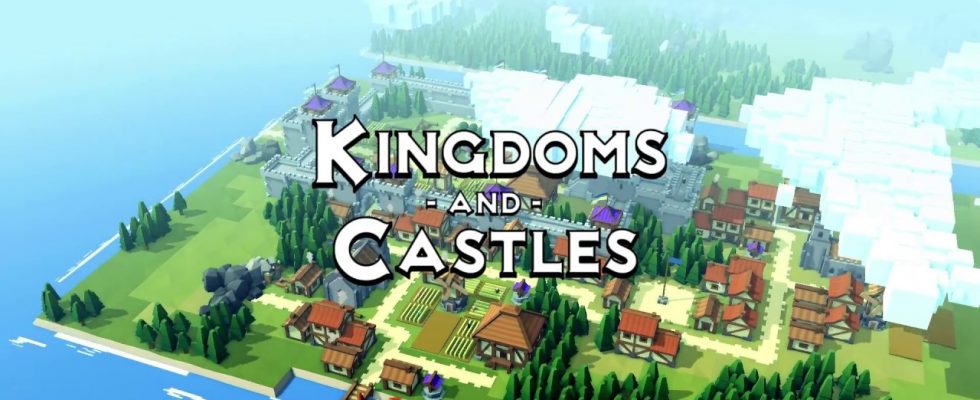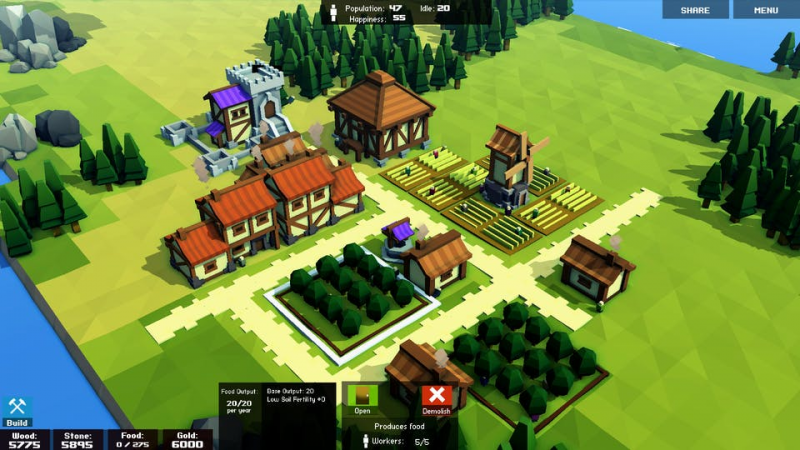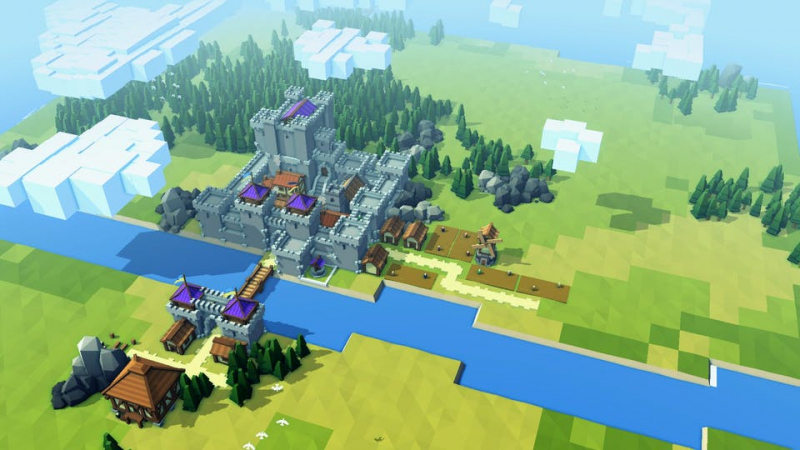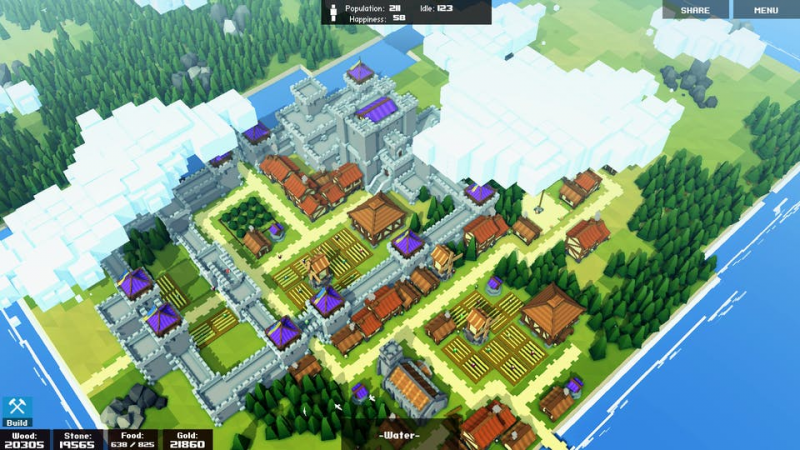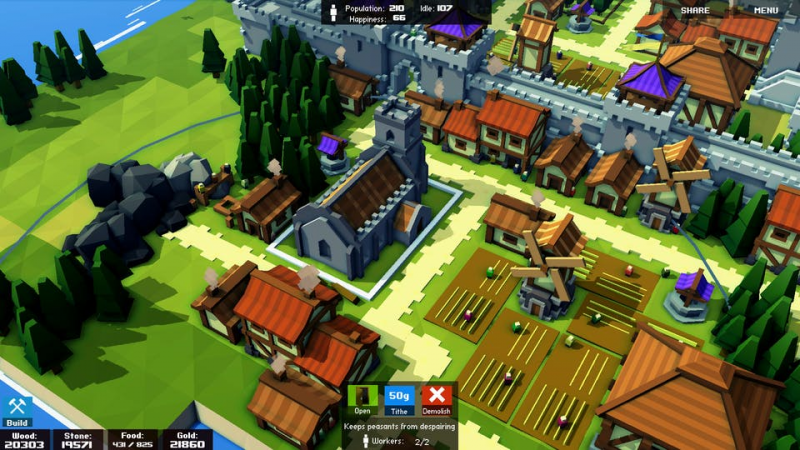If Kingdoms and Castles looks to you like a blocky, more colourful version of Banished then, well, good job. That’s pretty spot on.
Kingdoms and Castles is a minimalistic city builder about carefully managing the growth of your township. You’re tasked with the job of building out from your castle and creating as large a township as possible, whilst simultaneously making sure your villagers don’t get raided by vikings, burned by dragons or starve due to your own negligence.
The game starts on a relatively small area of land. Pick a good place to put down your initial keep and you can start expanding into a small village by building a few little hovels and a few farms. There are only a few materials in the whole game you ever need to pay much attention to and when you begin with even those are limited to food, wood and stone. Make sure you have enough food coming in and you’ll be able to cut down some trees to expand and build some industrial works like a quarry or a forester. Eventually, you can upgrade to larger buildings that run a more efficient household; each home has a number of beds which represent your potential workforce – but there is always one or two members who’s job it is to travel back and forth to pick up food for the home. Larger homes are generally more efficient, but require many more materials and gold.
You can start to build city walls, although it’s unlikely you’ll be able to contain your growing city so early on – better to build a few walls and some defences to stave off any vikings and let your city grow as naturally as possible. As your population grows, as does the demand for food and eventually luxury items like bread and coal. Plagues can spread, vikings can attack, fires can break out and heavy rains can decimate your food takings if you’re too reliant on farms (orchards don’t provide as much, but they’re immune to flooding). Managing your people’s happiness while attempting to continue to grow can at times be a game of spinning plates. Are there enough foresters to collect wood for the coal makers, so they can provide coal to the blacksmiths, so they can make tools to make the foresters more efficient? Do I have enough idle villagers to build a home, so I can have more idle villagers? If too many people come in, am I going to be able to feed them?
If your people truly are miserable you can always install some taverns (they eat up food, but make any houses surrounding them happy) or a library (pay their wages and they’ll do the same, with the added bonus of improving over time) or even a church, although God doesn’t seem too bothered about the dragons flying overhead. Eventually you can start paying attention to more specific whims; by clicking on any house and observing their stats you can see what’s making that household happy or sad. Purple icons appear over the heads of any occupants and you can watch as they mill back and forth with food or coal between the home and the market.
It’s satisfying being able to click on any building and track it’s occupants as they busy around, and it’s an insight into a game that shows everything on screen. If you see that you have 200 wood in the task bar at the bottom of the screen, you can zoom into the stockpile and take a gander at it. Builders will come back and forth picking materials up and you can watch them, too, as they take it back to the project they’re working on. Thanks to it’s low poly aesthetic, Kingdoms and Castles can show everything off, and it has a similar effect of watching busy ants.
In the end, Kingdoms and Castles probably doesn’t have enough depth to make it a title worth going back to after you’ve built your first city and explored its systems and how they interplay. Harder difficulties might make expanding that much more challenging, but eventually the game simply becomes “wait until the vikings attack again” and it needs something to pick up interest in its end game.
All that said, it truly a fun diversion for a few evenings and it has the same sort of absorbing quality that titles like Sim City and Civilisation manage. It certainly seems to have more satisfying and intuitive systems than it’s contemporary Banished, and perhaps with some post-release support from it’s developer it might get the endgame it deserves. There’s certainly a lot of room to add new buildings and events but as it stands what is there already is worth checking out.

